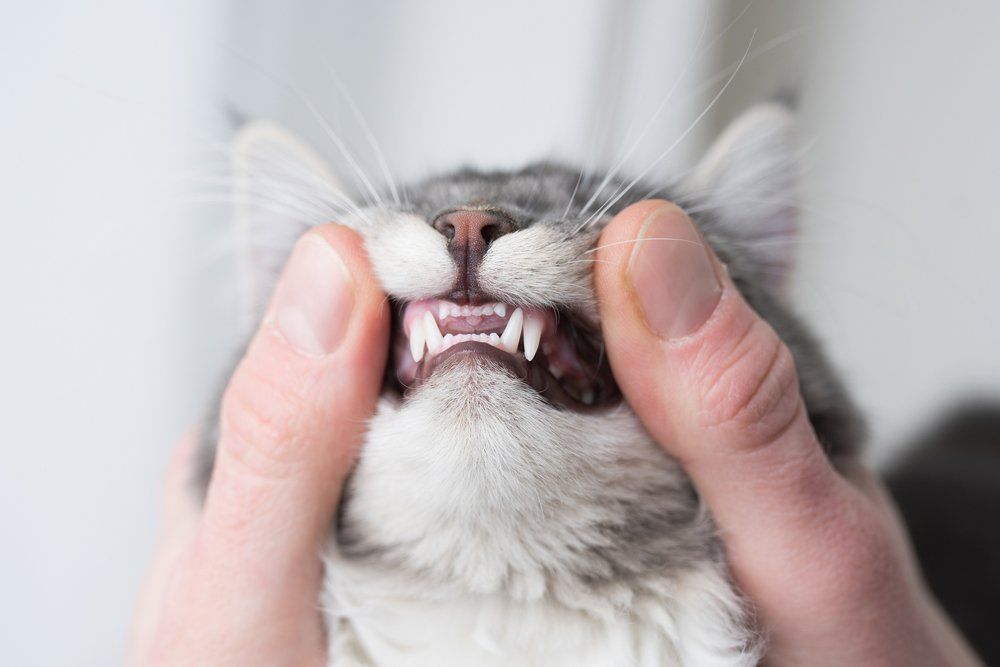Cats and Teeth: What's Really Going on Inside Their Mouth?

A cat's yawn is an invitation to view an incredible and intimidating set of fangs. Most cats won't allow their owner to indulge in a thorough exam, and frequent or novice prodding into a reluctant animal's mouth may encourage bad behavior. Plus, cat bites are painful and dangerous. Your cat's teeth are especially suited for a carnivorous lifestyle, but few cat owners really understand much about them. Read on to learn more about your feline's teeth without the risk of a nasty bite. What is Normal for Cat and Their Teeth? Like many mammals, cats grow a set of baby teeth which are replaced later by permanent adult teeth. Tiny baby teeth emerge around two weeks of age. Later, these temporary teeth fall out as new ones make their appearance. When your kitten is around five or six months old, you may spot a baby tooth that falls out as he or she bites or plays with toys. An adult cat should have thirty-two teeth in all, each with a special purpose. Those four prominent, impressive fangs, or canine teeth, help your cat puncture, rip and tear prey, enemies, and food. Incisors are very tiny teeth set between the canine teeth in the upper and lower jaws. These 12 small teeth help your cat pick up and hold onto food as well as nibble or gnaw as they groom. Finally, the remaining teeth toward the rear of a cat's mouth are reserved for grinding food. Pre-molars and molars with relatively flat surfaces constitute eight upper and six lower teeth. Should I Worry About Dental Problems? Unlike sharks that continually shed teeth and regrow new sets, cats do not lose their adult teeth. Strangely, cats do not get cavities in their teeth. Thanks to a diet with no sugar requirements and uniquely shaped teeth with fewer flat surfaces, bacteria that cause cavities simply do not grow on a cat's teeth. However, their permanent status does not guarantee a cat will never experience dental problems. Cats can still develop conditions like gingivitis where bacteria and plaque on teeth and along the gum line cause inflammation. Severe gingivitis in teeth can advance to a more serious condition. Weakened gums and teeth of periodontitis may loosen a cat's teeth or even make a tooth fall out completely. Often a cat may experience tooth resorption when bone replaces the structure within a tooth. This phenomenon can spread to other teeth. Around 30 to 70% of cats display signs of tooth resorption. How Can I Help My Cat Have Good Dental Health? You can help your cat maintain healthy teeth when you prevent dental problems before they become serious. Otherwise, your cat may lose one or more teeth due to an infection or require a tooth extraction, both of which can affect quality of life. Some common signs there may be something wrong inside your cat's mouth include:
- Drooling
- Visibly red or inflamed gums
- Changes in eating habits
- Rotten, fishy breath





